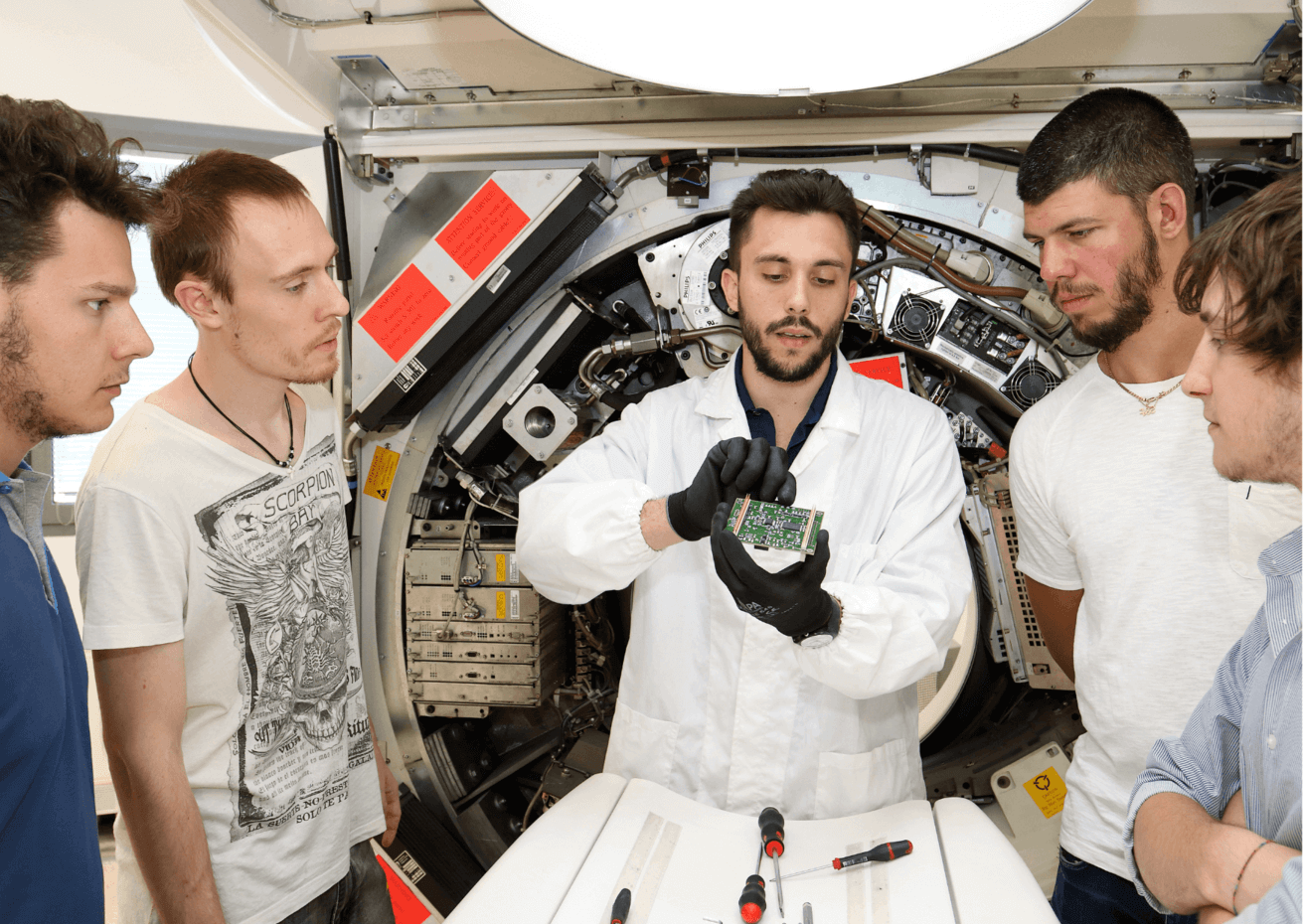CONTACTS
Istituto Tecnologico Superiore per la chimica e le nuove tecnologie della vita - LifeTech ITS Academy
Via G. e S. Caboto, 27 – 34147 Trieste (Italia)
International office
040 993 2904
Academic Affairs
040 993 2902 - 2904 - 2905
Administration and Communication
040 993 2902 - 2905
Management
040 993 2908
Certified e-mail
info@itsvolta.it
PEC
fondazioneitsvolta@legalmail.it
Orario di apertura









